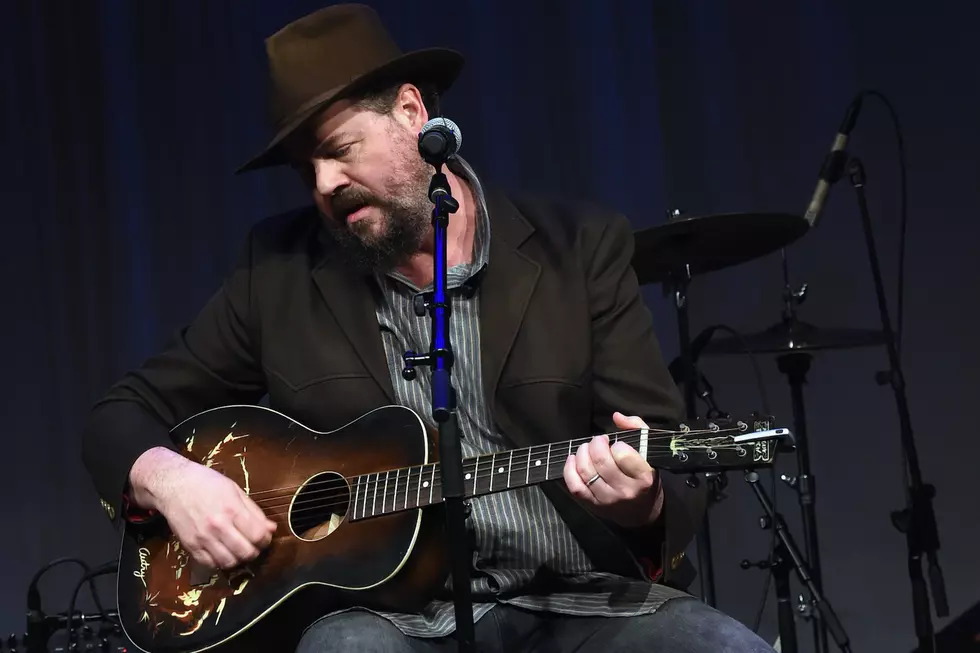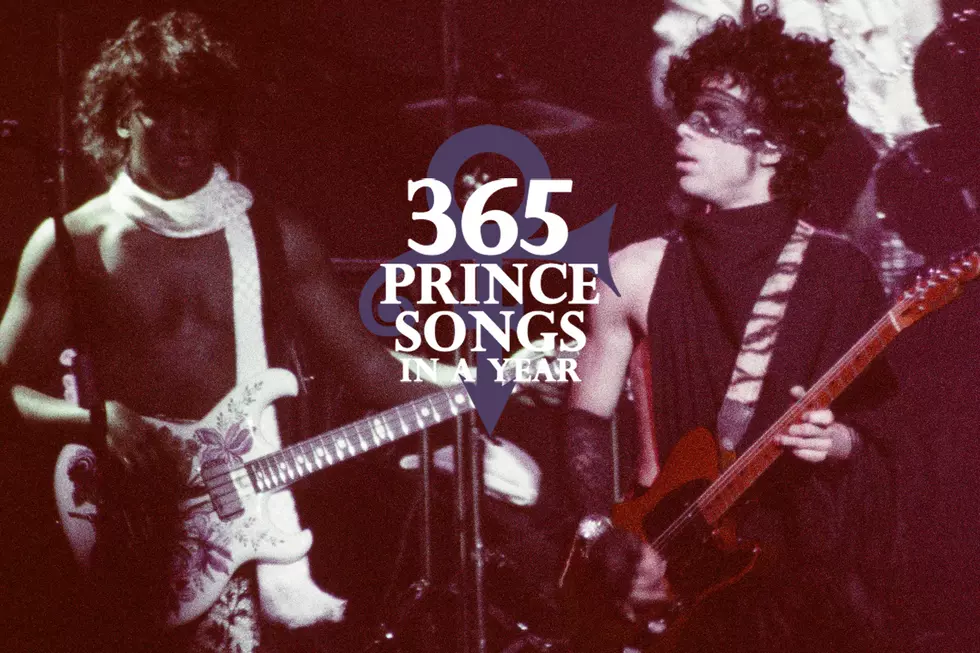
Nicki Bluhm of the Gramblers: ‘It’s an Adventure to Write About Adventures’
By the time Nicki Bluhm teamed up with the Gramblers for their 2013 self-titled debut, she had already established herself as a formidable solo artist with a pair of LPs in 2008 and 2011, both of which were recorded with the help of her husband, Mother Hips frontman and Gramblers songwriter-guitarist Tim Bluhm. The pair went on to collaborate on their 2011 Duets album, but with the Gramblers – who are rounded out by guitarists Deren Ney and Dave Mulligan, bassist Steve Adams and drummer Mike Curry – their creative partnership sounds most at home.
Their 2013 eponymous effort was a fine mission statement for Nicki Bluhm and the Gramblers. Propelled by swaggering lead track and single, “Little Too Late,” and the band’s viral YouTube “Van Sessions,” the album presented listeners with the Gramblers’ laid-back, West Coast blend of country, folk, classic rock and blues. On April 21, the Bay Area six-piece dropped their sophomore follow-up, Loved Wild Lost, on Tim Bluhm’s own Little Sur Records. The album boasts the ease and direction surely bestowed to a band that has comfortably settled into the groove of their tightly crafted alt-country.
When we caught up with Nicki Bluhm, the Gramblers frontwoman was still a week out from Loved Wild Lost’s arrival, sitting outside of that night’s venue in Nashville -- one stop on an extensive tour that will take the Gramblers to this year’s Mountain Jam in June. During our conversation, Bluhm discussed the making of the band’s second long-player and the adventures of life on the road that helped inspire it.
Now that your first album with the Gramblers is behind you, how was it returning to record a follow-up?
For this record, we were much more prepared than we have been in the past. Last spring, we all got together to do some pre-production work in Atascadero, Calif., on a ranch and that was a really valuable time for us – to just get together for about two weeks, live on the ranch together, play music and teach each other our songs we thought would be appropriate for the record. [We also got] really dialed in before we went into recording in the late summer. So that was something that was different, and I think really helped the process.
There are multiple songwriters in the group. How does that look during the creative process?
Usually how it works is everybody will bring their songs to the table. So Deren Ney brought a couple for this record, Tim Bluhm brought a few and then I wrote a bunch for the record. We just bring them to each other and work on the arrangement together, but the general idea and structure is typically finished by the time we bring it to the group. Tim and I work on the side together a lot; he’ll kind of help me craft my songs and tweak my lyrics a little bit, but otherwise we come with pretty much finished songs. Then it’s just really about working out the arrangement with the band.
Previously, you've said the growth and the time you spent together as a band since the first album played a role in Loved Wild Lost. Could you expand on that?
We’ve just been touring so much for the last two years without stopping and you just really get to know each other really well. We were all kind of friends before we were in a band together. I’ve known Deren since I was a kid and I’m a longtime Mother Hips fan – which is Tim’s band – and so are the rest of the band. So we’ve all really known each other for a long time. But musically, it was just kind of like boot camp. We were on the road and, for me, Deren and Dave, this was our first band we’ve ever been in. So it was a lot of learning on the fly and figuring out how to make music live, which is different every night and challenging. So I think it was just a good process for us to go through as a group. And luckily we had more seasoned people, too. Mike Curry, Steve Adams and Tim Bluhm, they’ve all been in bands for a long time. So we’re kind of half and half and it’s been nice to have the more seasoned guys help out the newer kids in town. But now it seems like we’re all on a slightly more level playing field, certainly not equal. But the newbies are starting to catch up, which is nice and feels good to get in the flow and have that time playing live under our belts.
I get the sense that these are classic country traveling songs, especially a song like “Me and Slim.” Did being on the road have an impact on the content of the album?
Yeah, definitely. I think when you’re on the road as much as we were over the last two years, it just is your life, so it’s kind of unavoidable that you’re going to write about your experiences. And the last two years have been a lot of road travel and a lot of growth and self-reflection. I wouldn’t want to do anything other than be in a touring band, but it’s not easy and sometimes it helps to write a song about it. You can just kind of vent a little bit or tell a funny story. It’s an adventure and it’s fun to write about adventures.
How was your experience working with producer Brian Deck (Iron and Wine, Owen)? Did he bring a fresh perspective to the table?
He did. Brian was awesome; he really helped us just focus in, really be deliberate about the parts we played and he kind of stripped it down and cut the fat. The record, I think, turned out really clean and there’s a lot of empty space, which feels nice. A lot of the songs require a little more attention lyrically, so I think the more stripped instrumental section lends itself to making space for the lyrics, which is really cool. So he was great to just help us stay on task. He’s got great taste and we all really respect him a lot. We worked well together and I think he did a good job just keeping us focused and deliberate about our approach.
Were there any albums or artists you were listening to at the time of recording that helped inform the album’s more classic country tones?
We all have different influences, but I think one thing we can all agree on is that the ‘60s and ‘70s California country-rock was something we were all really into – a lot of the L.A. stuff like the Byrds, Linda Ronstadt and Joni Mitchell and a lot of the stuff that was going on at that time. I always like how it feels really comfortable and classic. It’s laid back but there’s an intention to the songs; it’s not meandering, it’s not wandering, it’s not jamming, it’s got intention, but it feels really relaxed and I like records like that. I love J.J. Cale’s Naturally. That’s kind of a good example of that.
What do you guys do to bring those influences into present day?
Yeah, that’s the trick, right? You can have your influences that you admire, but you don’t necessarily want to sound like them. It’s more just the feel or the vibe, so a lot of it is looking at the dynamics of the songs you like. What was it that just totally got your attention there? Was it that everything dropped out except the guitar? Or was it that there was a big drum solo? [It’s] just getting to the root of the emotion, like why did that song make you feel that way at that time? So it’s on an even lower or more rudimentary level than the notes they’re playing. What was the feeling? That’s really what I think I try to glean from songs – taking a song I really dig and trying to figure out why it makes me feel so good when I listen to it and try to sort of get that same physical reaction from one of our own songs.
You’ve said “Waiting for Love” has a juxtaposition of dark and light. Is that a conscious approach on your guys’ end?
“Waiting on Love” is Deren’s song, so I can’t totally speak to that song. But that’s definitely a thing people do. They’ll put really sad lyrics in a fast song. I think it’s kind of fun because it takes you a while to realize, “Oh, this isn’t a happy song. This is kind of a dark song.” I’m not sure if that’s intentional or if it’s just the way that it worked out. But, yeah, it’s kind of cool. It’s sneaky. You have to have a couple of listens before you’re like, “Oh, this isn’t happy.”
The album ends on this beautiful, almost gospel note with “Heavy Hey Ya.” What's the background on that song?
That’s one of Tim’s songs and it was just really beautiful. I know he wanted to write a song like that. We had a moment in our set where we were doing a song called “In the Mountains,” which is a Sarah Siskind song, and she’s from Nashville. She wrote the song about being in the mountains and Tim and I heard it at the Infamous Stringudsters’ festival, which is called Festy. We both totally fell in love with the song and we started doing it in our set. I know he wanted to write an original song that kind of filled that space and niche that was a little more tender and stripped down and really focused on the harmonies.
You’ve recorded two solo albums and one with Tim Bluhm. Would you or both of you ever return to those projects?
We’re just coming out with the record, so for now, it’s definitely Gramblers focused. But Tim and I love making records together and I love singing with Tim. I hope that we do another duet record in the near future. Nothing’s off the table; it’s all just music There are no closed chapters.
More From Diffuser.fm









